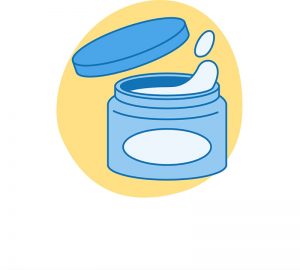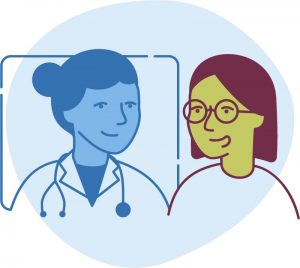Downloaded from www.mymenopausecentre.com
Direct URL: https://www.mymenopausecentre.com/symptoms/changes-to-nails/
Menopause and nail changes
Like your skin, nails need moisture to keep them healthy. Lower oestrogen levels brought on by the menopause can lead to dehydration and this can leave your nails brittle and weak.
Explore

Book an appointment
The highly experienced doctors and nurses in our menopause clinic are here to help you. Appointments from £190.
Book An AppointmentThe menopause affects our bodies right down to our fingertips – literally. You might notice that your nails seem drier and more brittle than usual. And it could be because of the menopause transition your body is going through.
What causes nail changes during the menopause transition?
Nails are made from layers of a protein called keratin, which also makes up your hair and skin. Keratin is a protective protein, less prone to scratching or tearing than other types of cells that your body produces.
When there’s too little moisture in your nails, they can become dry and brittle. Nail changes that are caused by the menopause are likely to be linked to the natural drop in oestrogen and dryness of the skin.
But the menopause may not be the only culprit. Other non-hormonal causes of brittle nails include:
- Trauma from cosmetics – using gels and false nails, as well as the repeated washing and drying of nails, can make them brittle and dry
- Age – previously healthy nails can change as we age. While toenails get thicker and harder, fingernails often become thinner and more brittle
- Medical conditions – like iron deficiencies, an underactive thyroid gland, Raynaud’s syndrome and fungal nail infections
How many women typically experience changes to their nails?
Dry, brittle nails become more common as we get older, though it’s uncertain how many women experience changes that are directly related to the menopause.
Are nail changes linked to any particular stage of the menopause?
Dry and brittle nails can occur at any time and it’s uncertain whether this is linked to any particular stage of the menopause. Certainly, they become more common as we age.
How can nail changes be treated?
Even though none of us can do anything about age-related nail changes, you can reduce the risk of split, cracked and brittle nails. To keep nails healthy and strong, try the following tips.
Use moisturiser
Make sure you rub it around and directly onto your nails. Always moisturise after washing and at bedtime.
Protect your hands and nails
Wear gloves when doing household jobs that involve detergents and cleaning fluids. And wear gloves when it’s cold outside.
Look after your nails
Keep them short to minimise contact with any chemicals. File them regularly to prevent splitting. Consider using a hardener for extra protection.
Avoid acetone nail varnish remover
This dries out your nails even more. You can find acetone-free products instead.
Other tips
If your nails are damaged and brittle, be patient while you wait for them to grow out. It takes about six months for a fingernail and up to 18 months for a toenail to grow back.
Taking supplements may help. Replace iron if you suspect that you may be low in it. The symptoms of low iron include tiredness and lack of energy, shortness of breath, heart palpitations and pale skin. If this is the case, you should see your doctor.
To check your iron levels you need a blood test, particularly if you have heavy periods. You can buy iron supplements over the counter – but be aware of the side effects, which can include constipation and nausea.
Eat iron-rich foods, including dark-green leafy vegetables, such as watercress and curly kale, cereals and bread with extra iron (fortified), meat and pulses (beans, peas and lentils). A dietician or nutritionist can help find the right diet for you. You can find out more about our nutritionist partner here.
What next?
See your GP if you are concerned about your nails, as you may need investigations and treatment. If you would like to discuss your symptoms in the context of the menopause, you can also book an appointment with our specialist menopause clinic.
If you think you may be experiencing symptoms of the menopause transition, you can learn more with our symptom checker or by taking our Menopause Questionnaire.
You can also find more information about the menopause transition at the British Menopause Society and the National Institute for Health and Care Excellence.
Authored by:
Dr Clare Spencer
Registered menopause specialist, GP and co-founder; see Dr Clare in person at The Spire Hospital, Leeds or online
Last updated:
07/04/2021
Book an appointment
The highly experienced doctors and nurses in our menopause clinic are here to help you. Appointments from £190.
Book An AppointmentLearn more
Join the pause. community
We’ve created pause. as a space for women to come together and share stories about their menopause experience, ask questions, and to find support and inspiration. We'll also share the latest news and updates on the menopause from our experts.
Want to be the first to hear our latest news? Join our pause. community today.
Share your email to receive the latest news, updates and information on new products and treatments from My Menopause Centre and our pause. community. You can unsubscribe at any time.
We're committed to protecting and respecting your privacy - see our Privacy Policy and Terms and Conditions

Book a consultation
Whether you want to discuss your symptoms, create a treatment plan that's right for you, understand some test results or have a check-up, the highly experienced doctors and nurses in our menopause clinic are here to help you.
Book nowContact My Menopause Centre
- General enquiries: hello@mymenopausecentre.com
- Book appointments online: Log into your account and go to 'My appointments'
- Book appointments by phone: 0333 444 1067
- Website: https://www.mymenopausecentre.com


















